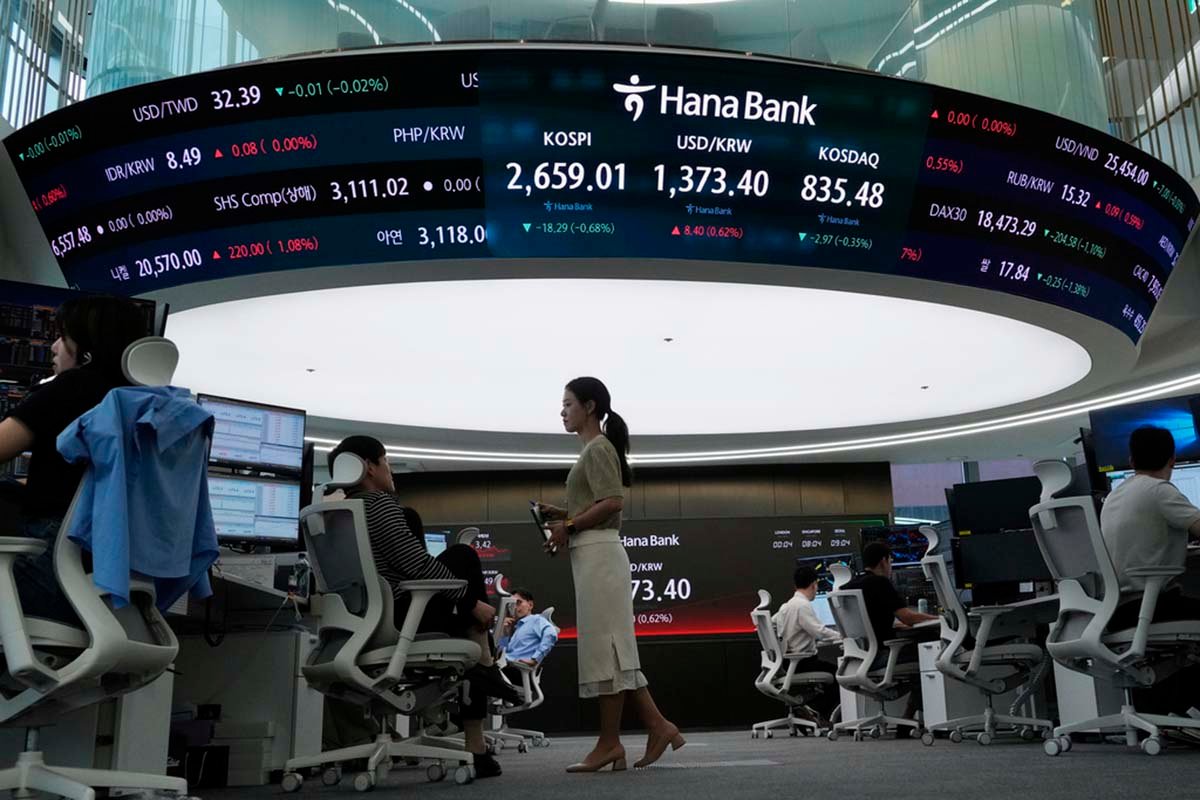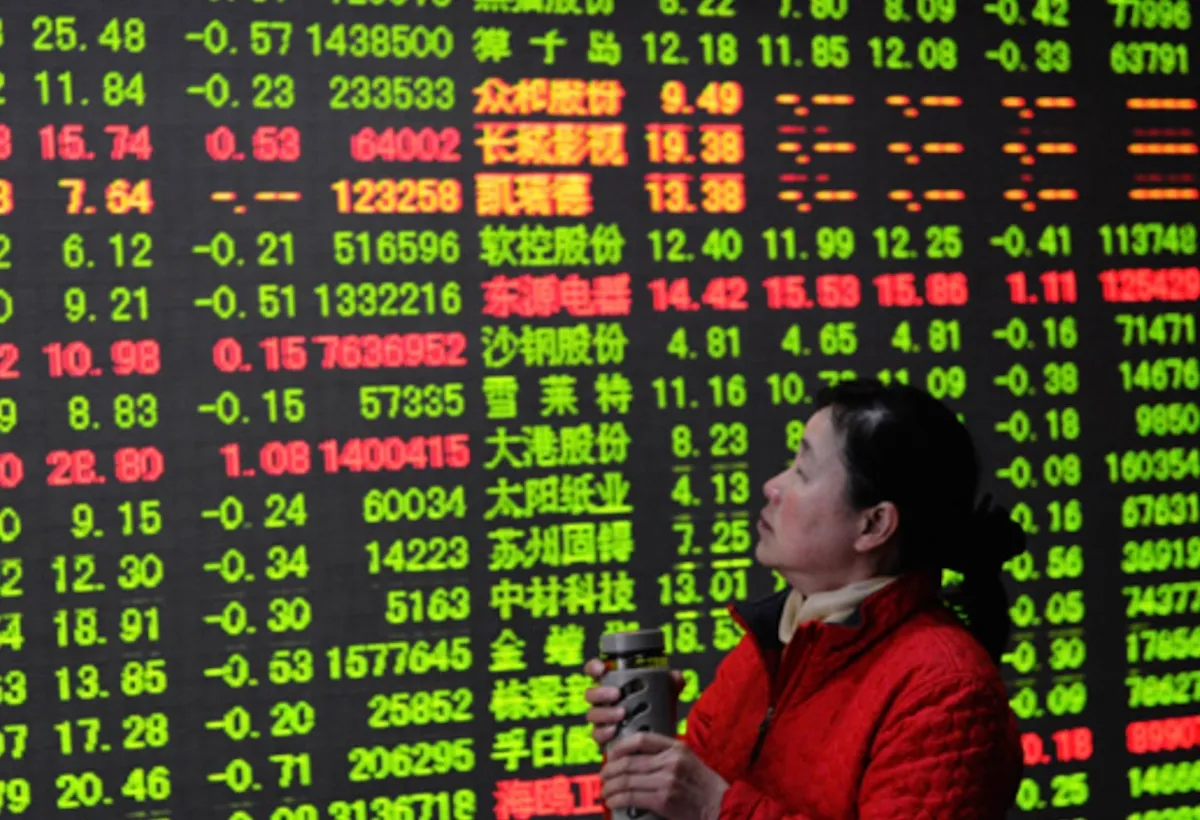The Asian stock market is a critical part of the global financial ecosystem, and today, its performance and trends are being closely monitored by investors and analysts worldwide. From powerhouse economies like China, Japan, and India to emerging markets across Southeast Asia, the dynamics of Asia’s stock exchanges can significantly impact global markets. Given the region’s rapid growth, technological advances, and shifting political and economic landscapes, understanding what drives the Asian stock market today is crucial for making informed investment decisions.
In this article, we will explore the key trends shaping the Asian stock market today, providing insights into market movements, sector performances, and the potential challenges investors may face. Additionally, we will highlight some of the critical factors driving market changes across key Asian economies, offering a comprehensive view of the opportunities and risks within the region.
Key Trends Shaping the Asian Stock Market Today
1. Technological Sector Boom
One of the most significant trends in the Asian stock market today is the rapid growth of the technology sector. Over the past decade, Asia has emerged as a global leader in tech innovation, with countries like China, South Korea, and Japan home to some of the world’s largest technology companies.
In China, companies like Alibaba, Tencent, and Baidu have been at the forefront of technological advancements, with the nation positioning itself as a global leader in artificial intelligence (AI), e-commerce, and fintech. These tech giants have driven the performance of major stock indices, such as the Hang Seng Index in Hong Kong and the Shanghai Composite Index. Despite recent regulatory crackdowns on big tech, the long-term potential for Asia’s technology sector remains strong, with continued investments in 5G, semiconductors, and green technology.
In South Korea, technology stocks like Samsung Electronics and SK Hynix dominate the market. These companies are key players in the global semiconductor industry, which remains in high demand. The ongoing global chip shortage and South Korea’s strategic importance in the technology supply chain have given tech stocks in the region a strong performance outlook.
2. China’s Regulatory Shifts and Impact on the Market
China has long been a dominant force in Asia’s stock market, but its regulatory landscape has undergone significant changes in recent years, creating both challenges and opportunities for investors. The Chinese government has implemented strict regulations on tech companies, particularly in areas such as data privacy, anti-competitive behavior, and financial markets. These crackdowns have caused sharp declines in stock prices for companies like Alibaba, Didi, and Tencent, resulting in significant market volatility.
At the same time, China’s commitment to innovation and self-reliance in sectors like semiconductor manufacturing and clean energy continues to fuel growth in certain industries. The CSI 300 Index, which tracks the top 300 stocks on the Shanghai and Shenzhen stock exchanges, has shown resilience despite regulatory headwinds, and investors are betting on long-term gains in China’s high-tech sectors, such as electric vehicles (EVs) and green energy.
In addition, the recent zero-COVID policy and regulatory hurdles have placed pressure on consumer spending and the broader economy. Inflation concerns, coupled with global supply chain disruptions, have raised questions about China’s future economic growth. However, recent signals from the government indicate a more relaxed stance on regulatory enforcement, which could provide a boost to the stock market in the coming months.
3. India’s Growth Story Continues
India has become one of the brightest spots in the Asian stock market, and its stock exchanges have seen an influx of foreign investment in recent years. India’s growing population, increasing urbanization, and expanding middle class are key drivers of its economic expansion. The National Stock Exchange (NSE) and the Bombay Stock Exchange (BSE) have performed strongly, with sectors such as technology, consumer goods, banking, and pharmaceuticals leading the charge.
India’s IT sector, led by companies like Tata Consultancy Services (TCS) and Infosys, continues to attract significant investor attention, given its global outsourcing appeal. The country’s Pharmaceuticals sector also remains one of the most robust, with companies like Sun Pharma and Dr. Reddy’s benefiting from both domestic and international demand for generics and biotechnology.
India’s stock market has shown resilience amid global uncertainties, with the Sensex index remaining relatively stable compared to other global markets. The government’s reforms to improve the ease of doing business, along with a booming start-up ecosystem, are contributing to India’s growing appeal as an investment destination.
4. Geopolitical Risks and Impact on Market Sentiment
Geopolitical risks, including tensions in the Taiwan Strait, South China Sea, and India-Pakistan border, continue to influence market sentiment in Asia. Political instability or military conflict in these regions could result in heightened volatility in Asian equities. US-China tensions over trade, technology, and human rights issues also create an unpredictable environment for investors in the region.
The recent US Federal Reserve interest rate hikes and global inflation concerns have further contributed to uncertainty in the markets. Investors are closely watching how these geopolitical events and external factors will impact Asia’s stock markets, especially in China, South Korea, and Taiwan, which are at the center of global supply chains.
Despite these risks, investors are also looking for signs of détente or cooperation among major powers, which could provide a boost to market sentiment. The recent thaw in relations between the US and China, coupled with efforts to stabilize trade relations, may offer hope for a more stable geopolitical environment.
5. Environmental, Social, and Governance (ESG) Investments
A growing trend across the Asian stock market today is the emphasis on Environmental, Social, and Governance (ESG) factors. Investors are increasingly looking for companies that prioritize sustainability, social responsibility, and good governance practices. This trend is particularly strong in Japan, South Korea, and India, where governments and companies are adopting ESG principles to attract global investment.
Japan’s corporate governance reforms have gained attention in recent years, with the country’s stock market becoming a focal point for ESG-focused investors. Additionally, green energy, electric vehicles, and sustainable agriculture are becoming key sectors for investment. In China, the government’s push for a carbon-neutral economy by 2060 is driving interest in clean energy and environmentally sustainable projects.
ESG investments are growing across Southeast Asia as well, particularly in Indonesia and Thailand, where companies are increasingly reporting on their sustainability practices. The rise of green bonds and sustainable investment funds further supports the growth of ESG-conscious investing in the region.
Insights into Key Asian Economies and Their Stock Markets
China’s Economic Slowdown
China’s economy has faced significant challenges, including slower growth, the zero-COVID policy, and regulatory changes. Although there are concerns about China’s economic slowdown, the government’s shift towards pro-growth policies, particularly in the technology and clean energy sectors, is expected to provide a boost to stock markets in the long run. Investors should monitor the People’s Bank of China and government measures to stabilize the economy, as well as ongoing developments in the tech and EV sectors.
Japan’s Stability and Reform
Japan’s stock market, notably the Nikkei 225, has shown resilience despite global challenges. The Bank of Japan’s monetary policies, along with corporate governance reforms, have kept the market relatively stable. Japan is also focusing on its transition to a more digitized economy, and sectors like tech and renewable energy are expected to see growth.
India’s Investment Surge
India’s stock market remains a strong performer, driven by domestic consumption, a booming tech sector, and strong foreign investment. As the country’s economy continues to grow, particularly in services, manufacturing, and technology, Indian stocks remain an attractive option for investors looking for high-growth potential in emerging markets.
Conclusion
The Asian stock market continues to be a dynamic and multifaceted investment landscape. Today, key trends such as the technological sector boom, China’s regulatory changes, India’s continued growth, and the rise of ESG investments are shaping the market’s direction. While challenges such as geopolitical risks and economic slowdowns remain, the long-term outlook for Asia’s markets is positive, driven by technological innovation, demographic growth, and economic reforms.
For investors, staying informed about the shifting trends in China, Japan, India, and other emerging markets across the region is crucial. With global economic uncertainty still looming, a balanced, well-researched investment strategy that takes into account regional risks and growth potential is essential for success in Asia’s vibrant stock market.
For the latest updates and analysis of global markets, including detailed reports on the Asian stock market, stay tuned to Realtime Coverage for continuous insights.

